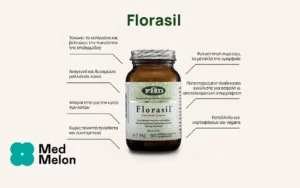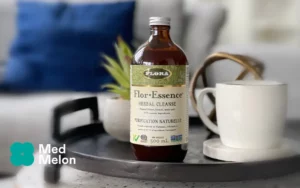Scientific Names of Black Currant:
Ribes nigrum L. [Fam. Saxifragaceae]
Forms:
Tea, gargle, and poultice made from infusion of fresh or dried leaves of Ribes nigrum.
Traditional Usage:
– Abscesses
– Anti-inflammatory
– Antioxidant
– Attention Deficit Disorder (ADD/ADHD)
– Boils
– Canker sores/Cold sores
– Diaphoretic
– Diuretic
– Edema
– Essential Fatty Acids
– Heart Health Maintenance
– Immune System
– Nerve Health Maintenance
– Respiratory Health Maintenance
– Rheumatism
– Sore Throat and Mouth
– Stress Disorders
– Ulcers
– Vascular Disorders
– Water Retention
– Wounds
Overview:
Black currant, Ribes nigrum L. [Fam. Saxifragaceae], also known as European black currant and quinsy berries, is a woody shrub found in hedges and woodlands of Europe, Siberia, Chile, Turkey, and North America. Because the infused leaves are diaphoretic and diuretic, they aid in the elimination or reduction of bodily fluids, they are believed to lower vascular pressure. The leaf infusion is also believed to stimulate the sympathetic nervous system* and may help with stress-related aliments. In folk medicine, the leaves are used to treat rheumatism, sore throat, mouth ulcers, and respiratory conditions. A wash or poultice of black currant leaves can be applied to infected wounds and abscesses. Rat-paw edema studies in France have revealed anti-inflammatory activity in the leaves of Ribes nigrum. The glycerolipid composition of Ribes nigrum leaves is considered unusual in that alpha-linolenic acid (alpha-18:3) occurs together with cis-7,10,13-hexadecatrienoic acid (16:3) and lower amounts of stearidonic acid (18:4) and gamma-linolenic acid (gamma-18:3). Black currant seeds are even more concentrated in these anti-inflammatory fatty acids and the oil is potentially useful in clotting and immune disorders. Black currant seed oil (BCSO), rich in both gamma-linolenic (18:3n-6) and alpha-linolenic (18:3n-3) acids, has been shown to modulate membrane lipid composition and eicosanoid production. It has been shown that the age-associated increase in prostaglandin E(2) production contributes to the decline in T cell-mediated immune function with age. A randomized, double-blind, placebo-controlled (soybean oil) study was conducted to examine the effect of 2 months supplementation with BCSO on the immune response of 40 healthy elderly subjects (65yrs+). It was found that prostaglandin E(2) production was significantly reduced in the BCSO-supplemented group, and this change was significantly different from that of the placebo group. Researchers concluded that BCSO has a moderate immune-enhancing effect attributable to its ability to reduce prostaglandin E(2) production.
*Note: Your Sympathetic Nervous System is called into action in the case of “Fight or Flight” responses. In these types of situations, your body uses energy – your blood pressure increases, your heart beats faster, and digestive processes slow down. The Sympathetic Nervous System is part of the Autonomic Nervous System (ANS). The “insides” (the “viscera”) of our body, like the heart, stomach and intestines, are regulated by a part of the nervous system called the autonomic nervous system (ANS). The ANS is a part of the peripheral nervous system and it controls many organs and muscles within the body cavity. In most situations, we are unaware of the workings of the ANS because it functions in an involuntary, reflexive manner. For example, we do not notice when blood vessels change size or when our heart beats faster. However, some people can be trained to control some functions of the ANS like heart rate or blood pressure.
Active Ingredients:
Black currant leaves contain: 0.5% flavonoids, especially derivatives of kaempferol and quercetin; myricetin and isorhamnetin glycosides have also been detected. There is little assured information about further constituents including : essential oil, diterpenes, proanthocyanidins, oligosaccharides, ascorbic acid, and enzymes. Flavonoids extracted from Ribes nigrum leaves were found to have the two major components, rutin and isoquercitrin. Anthocyanins of blackcurrants include: delphinidine-3-glucoside, delphinidine-3-rutinoside, cyanidine-3-glucoside, and cyanidine-3-rutinoside. The glycerolipid composition of Ribes nigrum (blackcurrant) leaves was determined. The total fatty acid composition was unusual in that alpha-linolenic acid (alpha-18:3) occurred together with cis-7,10,13-hexadecatrienoic acid (16:3) and lower amounts of stearidonic acid (18:4) and gamma-linolenic acid (gamma-18:3). Monogalactosyl-diacylglycerol contained the highest proportion of 16:3 with less in digalactosyl-diacylglycerol. Gamma-18:3 and 18:4 were present in all lipids and 18:4 was always greater than gamma-18:3. The highest percentages of gamma-18:3 and 18:4 were in phosphatidylcholine, but phosphatidylglycerol was particularly low in these acids. Three different pathways for glycolipid biosynthesis are possible for the plant. [Information taken from: Dobson G. 2000. Leaf lipids of Ribes nigrum: a plant containing 16:3, alpha-18:3, gamma-18:3 and 18:4 fatty acids. Biochem Soc Trans. 2000 Dec; 28(6): 583-6; Maatta K, Kamal-Eldin A, Torronen R. 2001. Phenolic compounds in berries of black, red, green, and white currants (Ribes sp.). Antioxid Redox Signal. 2001 Dec; 3(6): 981-93].
Suggested Amount:
Black currant leaves may be taken as a tea. To make the infusion, pour boiling water over 2-4 grams (1 teaspoon = 1.0 grams) of finely chopped black currant leaves, steep for 5 to 10 minutes, and then strain. Drink one cupful several times daily. (Wichtl and Bisset)
Drug Interactions:
None known.
Contraindications:
Black currant leaves are contraindicated in cases of accumulation of fluid (edema) due to cardiac or renal insufficiency.
Side Effects:
None known.
References:
Chanh PH, Ifansyah N, Chahine R, Mounayar-Chalfoun A, Gleye J, Moulis C. 1986. Comparative effects of total flavonoids extracted from Ribes nigrum leaves, rutin and isoquercitrin on biosynthesis and release of prostaglandins in the ex vivo rabbit heart. Prostaglandins Leukot Med. Jun; 22(3): 295-300.
Declume C. 1989. Anti-inflammatory evaluation of a hydroalcoholic extract of black currant leaves (Ribes nigrum). J Ethnopharmacol. 1989 Nov; 27(1-2): 91-8.
Wang BH, Foo LY, Polya GM. 1996. Differential inhibition of eukaryote protein kinases by condensed tannins. Phytochemistry. 1996 Sep; 43(2): 359-65.
Wichtl M and NG Bisset (eds). 1994. Ribis nigri folium – Black Currant Leaf. In Herbal Drugs and Phyto-pharmaceuticals. (English translation by Norman Grainger Bisset). CRC Press, Stuttgart, pp. 421-423.
Wu D, Meydani M, Leka LS, Nightingale Z, Handelman GJ, Blumberg JB, Meydani SN. 1999. Effect of dietary supplementation with black currant seed oil on the immune response of healthy elderly subjects. Am J Clin Nutr. 1999 Oct; 70(4): 536-43.




